
Faye Wong is a Chinese-Hong Kong singer-songwriter and actress. Early in her career she briefly used the stage name Shirley Wong (王靖雯). Born in Beijing, she moved to Hong Kong at the age of 18. She debuted with the Cantonese album Shirley Wong in 1989 and came to public attention by combining alternative music with mainstream Chinese pop. Since 1994, she has recorded mostly in her native Mandarin.
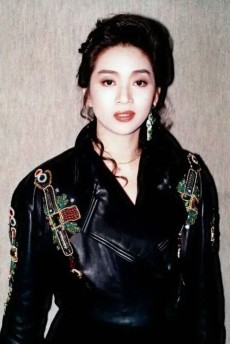
Anita Mui Yim-fong was a Hong Kong singer and actress who made major contributions to the Cantopop music scene and received numerous awards and honours. She remained an idol throughout her career, and is regarded as a Cantopop diva. She was dubbed as the "daughter of Hong Kong" and is considered one of the most iconic Cantopop singers.

Kulilay Amit, Han Chinese name Chang Hui-mei, better known by her stage name A-Mei, is a Taiwanese singer and record producer of Puyuma descent. Born as Amit Kulilay in the rugged mountains of eastern Taiwan, she made her debut in 1996. A leading figure of the Mandopop music scene since the mid-1990s, A-Mei is widely known for breaking ground for Taiwanese indigenous peoples and being a voice for LGBT rights and gender equality. She has been given the moniker "Queen of Mandopop" and the "Pride of Taiwan." Her career longevity, resilience, artistry, and versatility have established her as a pop culture icon in the Sinophone world.

Anthony Wong Yiu-ming is a Hong Kong singer, songwriter, actor, record producer and political activist. He rose to prominence as the vocalist for the Cantopop duo Tat Ming Pair during the 1980s before embarking on a solo career. He also performed and collaborated with the theatre group Zuni Icosahedron. Wong is the director for music production company People Mountain People Sea. He also co-founded the LGBT rights organization Big Love Alliance and the non-profit charitable organization Renaissance Foundation.

Shirley Kwan or Kwan Suk Yee is an influential former Cantopop singer from Hong Kong. Kwan first shot to fame in 1989 with the hit "Happy Are Those in Love" (難得有情人) and was widely popular throughout the early to mid-1990s. She is noted for her distinct, whispery vocal style and known equally for singing mainstream ballads and more alternative songs. She announced her retirement from the music industry in April 2020.

Edmond Leung Hon-man is a Hong Kong singer-songwriter, record producer, actor and television host.

Tat Ming Pair is an experimental Cantopop duo formed in Hong Kong in 1985 by composer Tats Lau (劉以達) and vocalist Anthony Wong Yiu-ming (黃耀明). Their blend of Cantopop, synthpop, new wave and electronic dance music with lyrics that reflected contemporary social, political, and literary themes, made them one of the first alternative and most influential bands of the 1980s Hong Kong music scene. The band enjoyed critical and commercial success until a hiatus in 1990. After their breakup, Wong proceeded as a solo artist while Lau went into acting although the duo have reunited several times over the years.

Justin Lo Ting Wei, known professionally by his stage name Tse Tien, is a Hong Kong American singer-songwriter, actor and record producer working in Hong Kong.

Hsu Ru-yun, better known as Valen Hsu, is a Taiwanese pop singer-songwriter, author and occasional actress. Since the mid-1990s Hsu has been one of the most popular female singers in the Mandopop scene, and is best known for her love ballads.
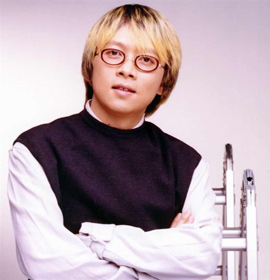
Tom Chang Yu-sheng was a Taiwanese pop vocalist, songwriter and record producer. Born in 1966, Chang was the eldest among his other four siblings whose mother is Atayal and father a veteran of the ROC military. Being influenced deeply by Western rock music, he had participated in two metal bands at university before he gained publicity with a beverage tie-in ballad "My Future isn't a Pipe Dream" in 1988. In that year, Chang also released his debut album "Always Missing You" to a success, selling 350 thousand records within the regions, before singing the soundtrack of a popular movie Seven Wolves starring him as one of the leading roles. After his graduation in 1989, he was nominated "The Best New Artist" in th for his second album "Miss Me" with most songs co-written by himself. He developed his career as a singer-songwriter since then, endeavoring different genres of contemporary music and attempting to introduce them to the general public despite ups and downs. With moderate to low commercial successes of his subsequent albums, Chang focused more on backstage roles, including music production and songwriting for theater performances. He introduced A-Mei, a Puyuma and pub singer, to his record label whom he met during causal visits. Believing in her potential, Chang became A-Mei's vocal tutor, producer and supervisor. Soon after producing A-Mei's debut and second albums, which were released to a huge success in 1996 and 1997, he died at 31 years old. Renowned for his sopranist vocal range, significance to the development of the local music industry and versatility, Chang is widely referred to as "The Magician of Music in Chinese" and among the most prominent figures when it comes to Chinese language music with most of his commercial failure later considered to be masterpieces.

Coming Home is the fourth Cantonese studio album recorded by Chinese singer Faye Wong. It was released on 13 August 1992, after her return to Hong Kong after her year-long stay in New York City.
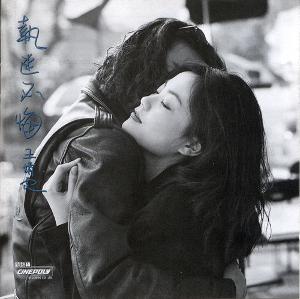
No Regrets, also translated as Stubborn and Regretless and Never Deplore, is the fifth Cantonese studio album recorded by Chinese singer Faye Wong. It was released on 5 February 1993, under Cinepoly. The title track was released in both Cantonese and Mandarin.

Fuzao is the fourth Mandarin-language studio album by Chinese singer Faye Wong. It was released on June 3, 1996, through Cinepoly. Wong took more artistic risks with her work as she approached the end of her record contract, resulting in the experimental nature of Fuzao. The album was positively received by critics, with The Straits Times considering the album as Wong's boldest and most artistically coherent effort to date.
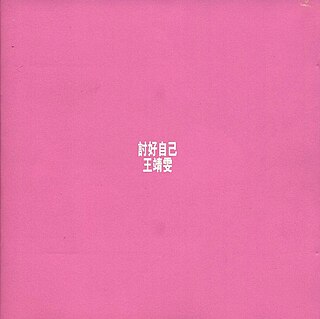
Please Myself, also translated as Ingratiate Oneself, is the eighth Cantonese studio album by Chinese recording artist Faye Wong. Using the stage name Shirley Wong, the album was released on 20 December 1994, under Cinepoly.

Sing and Play is the sixth Mandarin-language studio album by Chinese singer Faye Wong. It includes 10 tracks in Mandarin, with a bonus disc of 3 Cantonese tracks. It was released on October 2, 1998, in the Greater China region. On October 21, 1998, it was released in Japan. Wong and Alvin Leong served as the album's executive producers.
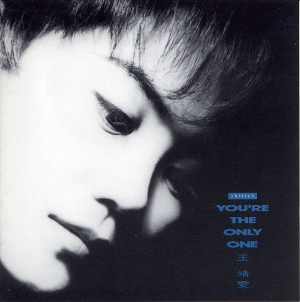
You're the Only One is the third Cantonese studio album recorded by Chinese singer Faye Wong, under the stage name Shirley Wong (王靖雯). It was released in December 1990 through Cinepoly.
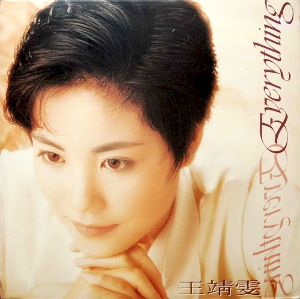
Everything is the second Cantonese studio album by Chinese singer Faye Wong, released in June 1990 under Cinepoly. It was recorded when the singer was based in Hong Kong, using the stage name Shirley Wong.
Sarah Chen or Chen Shu-hua is a Taiwanese singer who was active from the 1970s to the late 1990s. The recipient of the "Best Female Artist" award at the 1985 Golden Bell Awards and the Golden Melody Awards in 1992 and 1996, Sarah Chen was known for hit songs such as "Dream Awakening" (夢醒時分), "Red Dust" (滾滾紅塵), and "The Mundane World" (笑紅塵). Chen released over 30 albums in her career, which included Mandopop, Cantopop, Taiwan Ballad, and English songs.

Cass Phang is a retired Cantopop singer from Hong Kong, affiliated with EMI from 1993 to 1998 and then with Sony Music Entertainment. She was born in Hong Kong, studied at Munsang College and a high school in Australia. In September 1998, she married Hong Kong actor and pop singer Jan Lamb, a member of musical rap duo DJ Softhard. She gave birth to two daughters on 14 February 2000 and 28 July 2004.

The discography of Chinese singer Faye Wong includes 20 studio albums and 5 extended plays (EP). Wong began recording when she was a high-school student in China, releasing six albums during these years, including many cover versions of hits by Teresa Teng. In 1989, she began her official recording career in Hong Kong with Cinepoly Records. They gave her the stage name Wong Jing Man along with an English pseudonym, Shirley Wong, which was the title of her debut album.



















